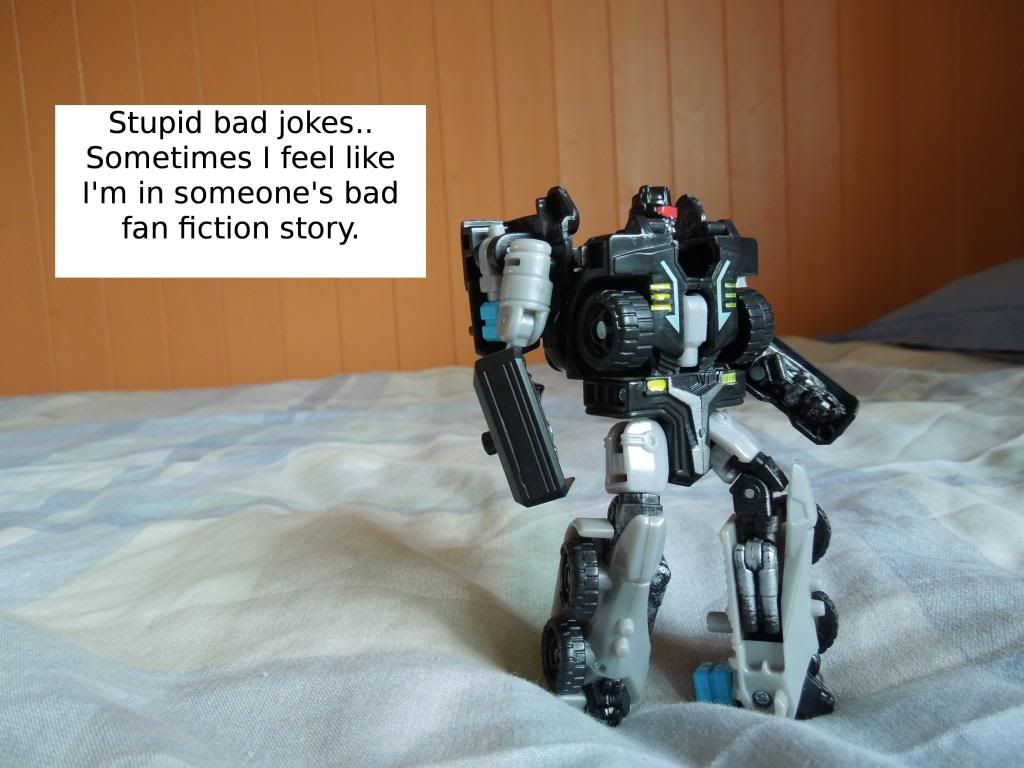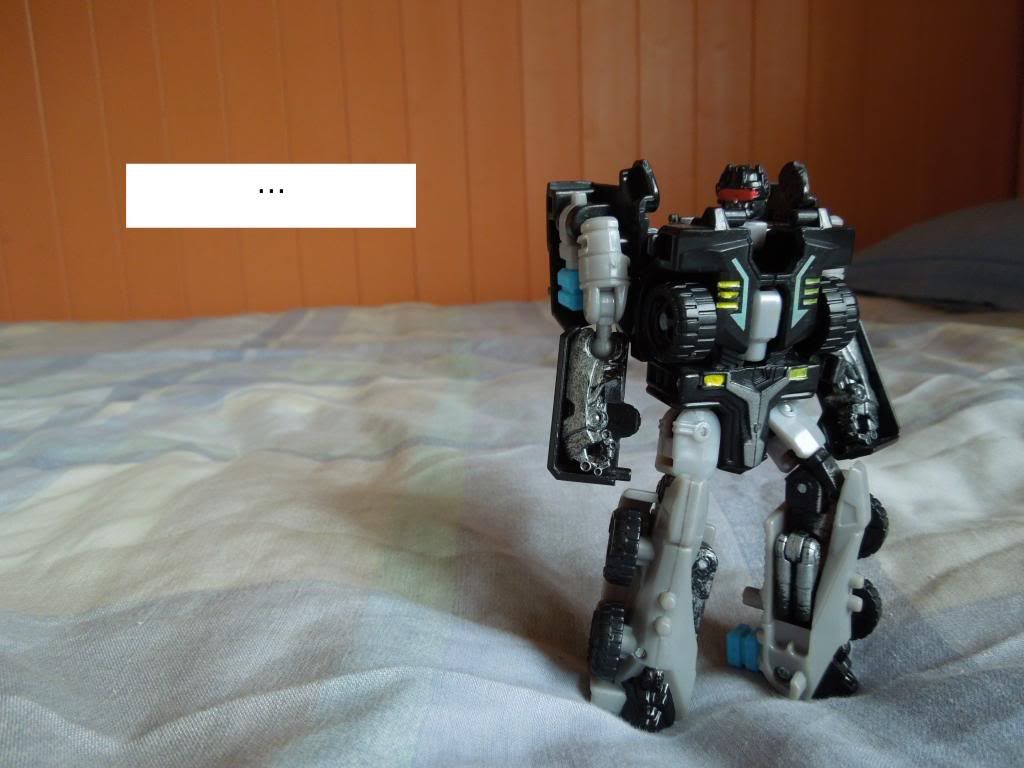Burn wrote:Va'al wrote:What about humour versus serious storylines? How do you strike a balance, if at all? Tips, ideas, suggestions?
I think it all comes down to what sort of story people want to craft.
You've seen my photocomics and stories, I either go hardcore serious (rare) or my personal preference, utter stupidity at the expense of others.
If my story is meant to be (pseudo) canonical and use existing characters, I use whatever personalities they have. Hence, in, say,
The Shadow Knows, the only comic relief comes from Skywarp, rather than Thundercracker or Jhiaxus or Megaplex. The rest of the tone is fairly somber, and at times a bit dark. If it fits the existing character to be funny, he can be funny. If it doesn't, it feels out of character and stretches the disbelief further. You still want your lighthearted moments in such a grim drama, however. It's easy to make your story too dark and grim to be truly enjoyable.
It's also very common for me to throw in little bits of humorous dialogue taking place in the background, like the comments subtly hinting at "Steve"s identity in
The Vanity of a Name and Steve Blum's sordid history of pretending to be David Willis. Also an obscure reference. I like those.

In comparison, when I crossover with
The Amazing Adventures of Dennis & Bruce, even if the evil Henry's plans are literally to destroy an entire universe, the entire storyline is intended as whacky fun, so I let my author avatar ham it up and include the Power
Rangers Core Combiners jingle for the transformation sequence. It's not meant to slot in seamlessly with any existing canon. As a result, it's usually more fun to write because the story can be resolved with a big finale or a complete anticlimax, and either can be funny.
To my mind, the key to balancing humor with serious drama in the narrative is
variety. You take the standard comedy routine of a cuckoolander and a straight man, and add varying personality traits amongst the cast, and let their interactions and dialogue carry the story. A good villain contrasts with the hero and has an understandable motivation, and the supporting cast have multiple dimensions to their personality and their presence and actions add layers of unpredictability to the story. Sometimes sheer incongruity between characters is all that's needed to create drama OR comedy. Sometimes the subplot of a larger story is the funny part. Sometimes a comedic series has a credible threat of a villain built up in the background.
And, as aforementioned, just making something stupid or ridiculous can lead your reader to conclude they'll have more fun if they ignore any logical shortcomings and just go with it.



